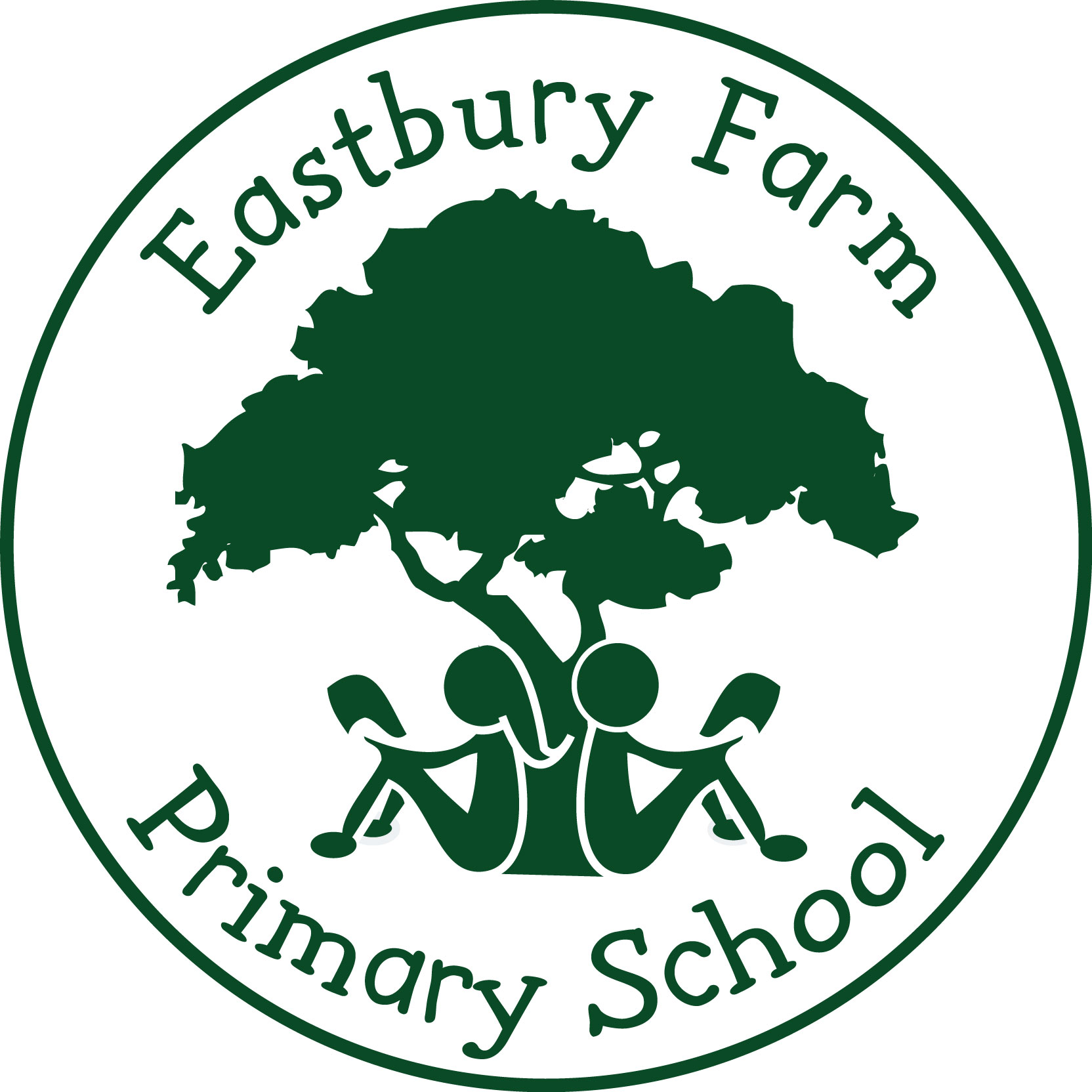Forest School
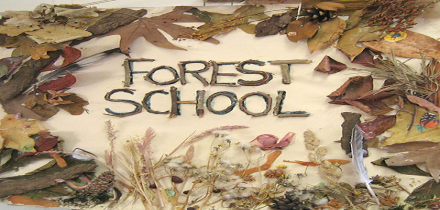
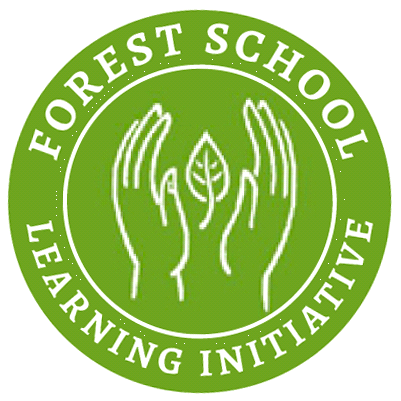
Forest School
‘The best classroom and the richest cupboard are roofed only by the sky’. Margaret McMillan
Forest School History
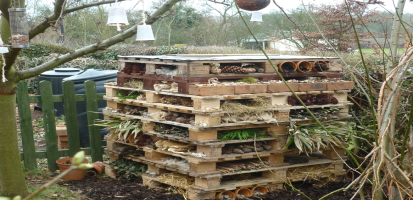
Forest School originates from Sweden where it has been continually developing since the mid 50’s. The main focus is to deliver all aspects of the curriculum in the outdoor environment. Through various studies it has been proven that children who experienced outdoor learning developed socially, had deeper concentration, improved behaviour and increased overall academic attainment. Forest school will give children the opportunity to develop self-confidence through self-learning through natural play facilitated by trained professionals. We are very lucky here at Eastbury Farm as we have an opportunity to develop our very own Forest School at Peebles’ Green. This is an area which has a variety of trees and natural resources to develop our outdoor learning. At Eastbury Farm we are very fortunate to have trained Level 3 Forest School leaders who help run and plan Forest School sessions in the foundation stage.
What is Forest School?
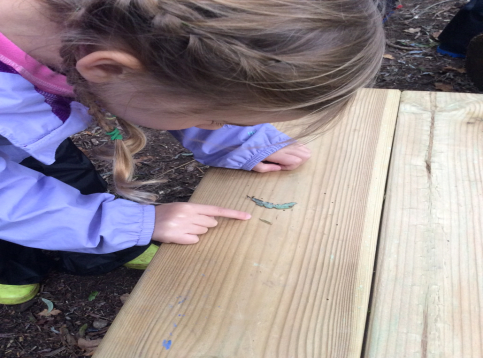 Forest School is based on the principle that children of all ages can benefit greatly from the learning opportunities inherently present in a woodland environment. Forest Schools provides opportunities in an outdoor setting for children to develop a variety of skills: particularly PSHE skills such as independence, self-discovery, communication, self-esteem and confidence building. Children learn to take risks, use their initiatives and co-operate. Beyond this, teachers can use the outdoor environment as a vehicle for art activities, key science concepts, developing physical skills and a whole lot more! In a typical session there may be an adult-led activity, but the ethos of Forest Schools also allows time for children to follow their own learning pathways and interests and adults then support them in their learning. This learner-centred approach interweaves with the ever-changing moods and marvels, potential and challenges of the natural world through the seasons to fill every Forest School session and programme with discovery and difference. Yet each programme does also share a common set of principles, aimed at ensuring that all learners experience the cumulative and lasting benefits that quality Forest School offers.
Forest School is based on the principle that children of all ages can benefit greatly from the learning opportunities inherently present in a woodland environment. Forest Schools provides opportunities in an outdoor setting for children to develop a variety of skills: particularly PSHE skills such as independence, self-discovery, communication, self-esteem and confidence building. Children learn to take risks, use their initiatives and co-operate. Beyond this, teachers can use the outdoor environment as a vehicle for art activities, key science concepts, developing physical skills and a whole lot more! In a typical session there may be an adult-led activity, but the ethos of Forest Schools also allows time for children to follow their own learning pathways and interests and adults then support them in their learning. This learner-centred approach interweaves with the ever-changing moods and marvels, potential and challenges of the natural world through the seasons to fill every Forest School session and programme with discovery and difference. Yet each programme does also share a common set of principles, aimed at ensuring that all learners experience the cumulative and lasting benefits that quality Forest School offers.
How are sessions organised?
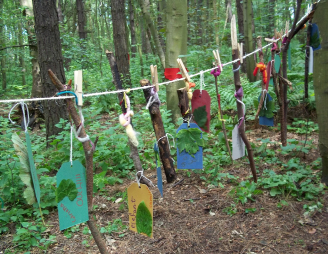 We are fortunate enough to have Peebles’ Green on site where we have set up a base camp which we will use at every session. Children in Nursery attend Forest School on Monday afternoons. Children in reception use the area for Woodland Wellie sessions on a weekly basis. Sessions will take place in all weathers so please ensure your child has: hat, gloves, warm clothes (winter) and long sleeve tops and trousers (winter) Risk assessments are undertaken and medical needs are taken into account
We are fortunate enough to have Peebles’ Green on site where we have set up a base camp which we will use at every session. Children in Nursery attend Forest School on Monday afternoons. Children in reception use the area for Woodland Wellie sessions on a weekly basis. Sessions will take place in all weathers so please ensure your child has: hat, gloves, warm clothes (winter) and long sleeve tops and trousers (winter) Risk assessments are undertaken and medical needs are taken into account
What do we do at Forest School?
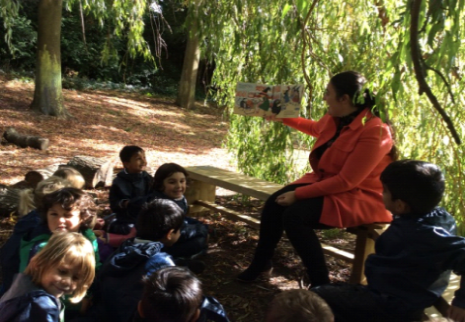 At Forest School the children have the opportunity to engage in both adult-directed and child-led activities. Children will be encouraged to explore, investigate, problem solve, take risks, work cooperatively and creatively throughout their Forest School sessions. All aspects of the EYFS curriculum will be evident in Forest School. Below is an example of some adult-led activities:
At Forest School the children have the opportunity to engage in both adult-directed and child-led activities. Children will be encouraged to explore, investigate, problem solve, take risks, work cooperatively and creatively throughout their Forest School sessions. All aspects of the EYFS curriculum will be evident in Forest School. Below is an example of some adult-led activities:
Please note the links are example activities
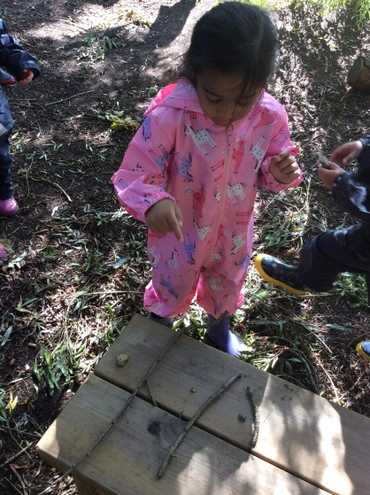 English
English
Story telling, learning new words, using nature in poetry, developing communication skills through team work
Mathematics
Measuring trees, shapes in nature and data collection
Science
Research food chains, pond and woodland mini beasts, life cycles and methods of creating fire.
ICT
Producing data . Recording project work, using the ipads to take photos and videos and using the class camera
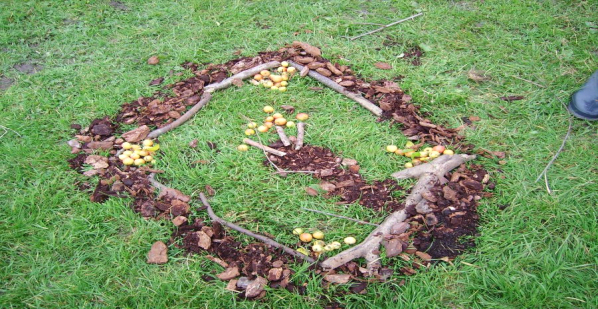 Art, Design and Technology
Art, Design and Technology
Natural art (mud painting, collages) working with clay and mud, willow sculpture and willow weaving. Den making, camp fire making and using tools.
Music
Making instruments and recreating animal and natural sounds.
Geography
Map reading, researching seasonal changes, comparing woodland and urban environments.
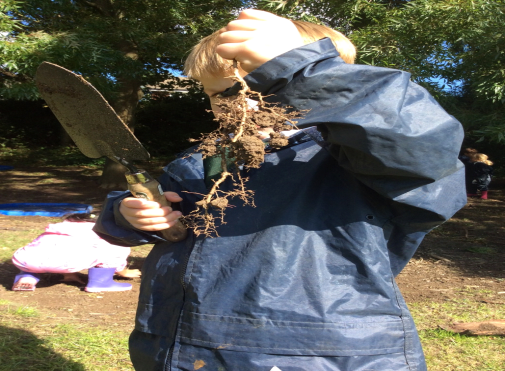 History
History
Research the local woodlands and any significant nature areas.
Physical Education
Walking, low level tree climbing and low level obstacle courses.
Personal, Social and Emotional (PSE)
Encourages working together in small teams, develops turn taking, building positive relationships with adults and peers , celebrating success and feeling valued.
